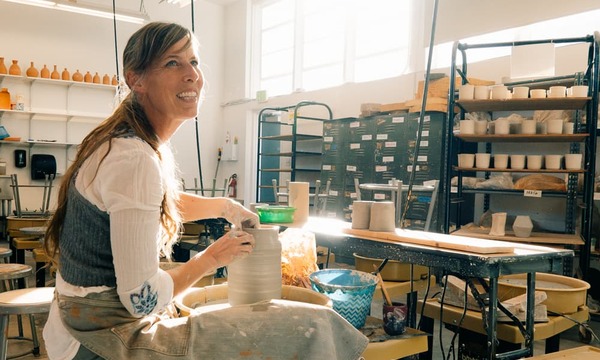I remember the first time I walked into a Manila casino—the flashing lights, the energetic chatter, the palpable tension mixed with excitement. It felt like entering another world, one where time and money seemed to operate by different rules. Over the years, I've watched friends and acquaintances navigate this world, some emerging unscathed while others found themselves caught in cycles they never anticipated. One particular case that stuck with me involves a colleague I'll call Marco, a software developer who initially visited casinos for occasional entertainment but gradually found himself spending three to four nights weekly at the gaming tables. His story isn't just about gambling; it's about how the environment itself can create an illusion of safety while quietly eroding one's financial stability—much like the psychological dynamics in horror games where threats feel real but are actually scripted.
Marco started with what he called "controlled visits," setting aside 5,000 pesos per trip, but within six months, his monthly losses averaged around 80,000 pesos. He'd describe the casino atmosphere as "hypnotic"—the way staff knew his name, the complimentary drinks that kept coming, the seamless transition from day to night without any visible clocks. Interestingly, his experience mirrors elements discussed in reviews of horror-adventure titles like Luto, where early moments establish tension but eventually reveal that the scares are "on-rails." Marco admitted that after numerous visits, he recognized the casino's manipulations: the strategic placement of ATMs, the subtle pressure to redeem loyalty points by playing more, the way near-misses on slot machines felt intentionally engineered to keep him engaged. He said, "It was like being on a haunted hayride—you know the ghosts won't actually grab you, but the creeps still get under your skin." This parallel highlights how both gaming environments—digital and physical—rely on curated thrills that feel riskier than they are, yet can lead to very real consequences.
The core issue here isn't just about willpower; it's about structural design. Casinos in the Philippines, much like the haunted house in Luto, operate on predictable patterns. They immerse you through sensory cues—the clinking of chips, the vibrant carpet patterns meant to disorient—while ensuring you're never far from temptation. Marco realized too late that his initial "fun" outings had shifted into a cycle of chasing losses, something he estimated cost him nearly 500,000 pesos over eighteen months. When he tried to cut back, he found it harder than expected—the convenience of integrated resorts, with hotels, restaurants, and gaming floors all connected, made it effortless to slip back into old habits. This is where understanding how to self exclude from Philippines casinos becomes critical. Self-exclusion isn't merely about blocking access; it's a formal agreement where individuals voluntarily ban themselves from entering casinos or using online platforms, typically for periods ranging from six months to a lifetime. For Marco, learning about this option was a turning point. He enrolled in a one-year self-exclusion program through PAGCOR, the regulatory body, which required submitting identification documents and photographs to be shared with all licensed venues.
Implementing the solution required more than paperwork—it demanded a shift in daily routines. Marco started by deleting gambling apps, redirecting his usual casino nights to gym sessions, and setting up automatic transfers to a savings account every payday. He also used tools like transaction alerts from his bank, which notified him if any casino-related spending occurred. Within four months, his savings grew by roughly 120,000 pesos, money he'd previously have allocated to blackjack or slots. The process wasn't flawless; he described moments of "phantom urges," where he'd instinctively drive toward a casino before remembering his commitment. Yet, the formal barrier of self-exclusion acted as a safeguard, much like how Luto's constrained gameplay—lacking combat or stealth—creates a bounded experience. In both contexts, limitations foster a different kind of engagement: one where you're aware of the boundaries and can focus on navigating within them rather than resisting external pressures.
Reflecting on this, I've come to see self-exclusion as a tool for reclaiming agency. It's not a sign of weakness but a strategic move, akin to adjusting difficulty settings in a game to match your skill level. Marco's journey underscores that protecting finances isn't just about budgeting—it's about restructuring environments to minimize temptations. From an industry perspective, I appreciate that regulators like PAGCOR have made self-exclusion accessible, though I believe it could be promoted more proactively, perhaps through partnerships with financial advisors or mental health advocates. After all, the goal isn't to eliminate entertainment but to ensure it remains sustainable. Just as I prefer horror games that balance chills with thoughtful design—Luto's eerie ambiance over cheap jump scares—I think casinos can evolve to prioritize customer well-being without dimming their allure. For anyone considering self-exclusion, my advice is to treat it as a personalized system: combine it with financial trackers, hobby substitutions, and occasional check-ins with trusted friends. Because in the end, whether you're navigating a virtual haunted house or a glittering casino floor, the real win lies in understanding the rules—and knowing when to rewrite them for yourself.
1plus ph
Zeus vs Hades - Gods of War: Who Would Win in an Epic Battle?
As I sit here contemplating the epic clash between Zeus and Hades, I can't help but draw parallels to the gold collection mechanics in modern gamin
Unlocking the 199 Gates of Gatot Kaca 1000: A Complete Guide to Master Every Challenge
I still remember the moment I first discovered the Solo Tour option in the remake of Tony Hawk's Pro Skater 1+2. After spending countless hours gri
How to Become a Millionaire in 5 Years with Smart Investments
I remember sitting at my kitchen table five years ago, staring at my modest savings account balance and wondering if I'd ever break through that ps
How to Become a Millionaire in 5 Years with Smart Investments
I remember sitting at my kitchen table five years ago, staring at my modest savings account balance and wondering if I'd ever break through that ps
 Biola University
Biola University_(1)_(1).jpg)


